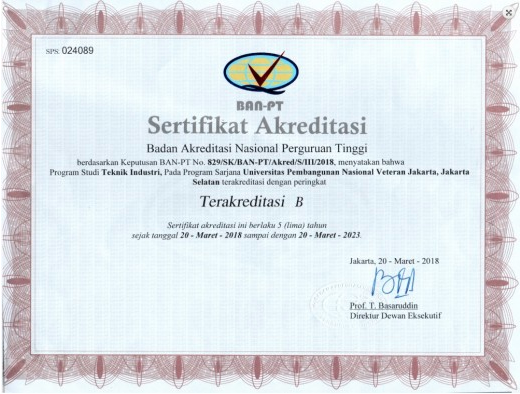S1 Electrical Engineering Study Program

Vision
In 2025 it will become an Electrical Engineering Study Program which has graduate learning outcomes and research work in the field of innovative national natural resource-based technology with the identity of State Defense and regional competitiveness.
Mission
- Organizing transparent and quality governance of the Electrical Engineering Study Program (Good Study Program Governance)
- Organizing high education in the field of competency-based Electrical Engineering tailored to market needs
- Carry out research and scientific development in the field of Electrical Engineering that is innovative and competitive
- Organizing community service in the field of Electrical Engineering
- Building cooperative networks at the national and global levels
Purpose
Producing Electrical Engineering graduates who are able to apply Electrical Engineering Science, especially in the field of Electric Power Systems and Telecommunication Systems, and succeed in both careers, academics, or professionals in industry, government, and education in the field of electrical engineering in the Asia Pacific region, especially Indonesia, and state defense identity.
Targer
Produce:
- Graduates with a cumulative grade point average (GPA) of 3.40 with a study period of 8 semesters and a minimum TOEFL score of 450
- Research that involves a minimum of 1 activity per lecturer per semester
- Community service that involves students at least 1 activity per year
- Publication in a national journal that is accredited by both lecturers and / or students at least 1 publication per semester
- Student achievements both nationally and internationally in the academic and / or non-academic fields with a minimum of 1 achievement per year
Competencies of Graduates of S1 Electrical Engineering
Competencies of Graduates of the Electrical Engineering Study Program
Competencies of Graduates Based on the Formulation of Learning Outcomes of the Electrical Engineering Study Program Graduates (CPP):
| CPP1 | Able to use Indonesian and English both in writing and orally in accordance with applicable rules |
|---|---|
| CPP2 | Have integrity and be able to think critically, creatively and innovatively |
| CPP3 | Able to provide alternative solutions to various problems in electrical engineering |
| CPP4 | Able to design technology-based entrepreneurs in the field of electrical engineering |
| CPP5 | Have professionalism and responsibility both in organizations and individuals according to professional ethics |
| CPP6 | Able to apply basic principles of mathematics, physics, information technology and engineering in solving electrical engineering problems |
| CPP7 | Able to apply modern engineering methods, capabilities and equipment required for electrical engineering practice, especially in the field of electric power systems or telecommunications systems. |
| CPP8 | Able to identify, analyze, and solve electrical engineering problems, especially in the field of electric power systems or telecommunications systems |
| CPP9 | Able to analyze and interpret data in the field of electrical engineering, especially in the field of electric power systems or telecommunications systems |
| CPP10 | Able to design intelligent electric power or telecommunication systems based on the needs of stakeholders in various fields of life |
| CPP11 | Able to analyze systems in the field of electricity or telecommunications that take into account several realistic boundaries, such as legal, economic, environmental, socio-political, ethical, health and safety, manufacturing, and sustainability. |
| CPP12 | Have the ability to understand the need for lifelong learning, including access to relevant knowledge on contemporary issues, in the field of electric power systems or telecommunications systems |

